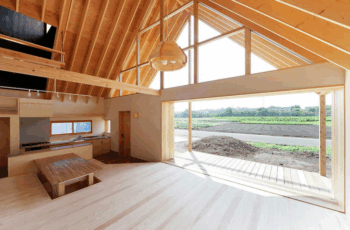
Building a log cabin should feel exciting—maybe even a little magical. But one wrong hire can turn that dream into a long, expensive headache. If you’ve ever heard horror stories about cabins going way over budget, dragging on for months, or falling apart a year after completion, chances are the problem started with hiring the wrong person for the job.
So how do you avoid that? The answer isn’t complicated, but it does mean watching for the signs. There are a few clear red flags that tend to pop up when you’re talking to a contractor who may not have your best interests in mind. And spotting them early could save you money, time, and a lot of unnecessary stress.

First and foremost—licensing and insurance. If a contractor can’t show proof of both, walk away. These aren’t just formalities. A license means they’ve met basic standards in your state or region. Insurance means if something goes wrong—someone gets hurt, something breaks—you’re not the one left holding the bill. Without these, you’re wide open to financial risk. And if things do go sideways, good luck trying to get anything fixed without legal headaches.
Next up is communication, or lack of it. If your calls go unanswered, emails take days to get a reply, or explanations sound vague or confusing—take it seriously. You need someone who keeps you in the loop, not someone who vanishes until the invoice shows up. Poor communication early on usually leads to bigger problems later. It’s not just annoying—it can delay your build, lead to misunderstandings, or worse, result in work that doesn’t match what you actually wanted.
Another big one? Reputation. Reviews don’t lie. Sure, no one has a perfect record, but if you’re seeing the same complaints again and again—missed deadlines, shoddy work, or rude behavior—that’s not a coincidence. It’s a pattern. Ask for references. Talk to real people who’ve hired them before. Scroll through their social media or check out their previous projects. If they’re proud of their work, they’ll have no problem showing it off. If they avoid your questions or brush off negative reviews? Red flag.
Let’s talk about contracts too. A good contract should be detailed, not full of fuzzy terms like “as needed” or “reasonable effort.” It should clearly spell out the timeline, cost, payment schedule, materials, and what happens if something goes wrong. Vague contracts are dangerous because they leave you unprotected when issues come up—and they will come up. A contractor who’s hesitant to put things in writing might not be confident they can deliver.
And finally, beware the hard sell. If you’re being rushed to sign a contract, pressured with “limited time” deals, or made to feel like you’ll miss out if you don’t decide right now—pause. Good contractors are in demand, yes. But the best ones don’t need to pressure you. They give you time to ask questions, think it over, and feel comfortable before making a commitment. A rushed decision is rarely a good one, especially when it involves something as big as building a home.
At the end of the day, building a log cabin is a major investment—not just in money, but in trust. You’re trusting someone with your dream. So don’t settle. Take your time. Do your homework. Ask the hard questions. And if anything feels off, trust your gut. The right contractor will be transparent, responsive, well-reviewed, and more than willing to walk you through every detail—no pressure, no runaround.
Choosing the wrong builder can cost you more than just money. It can cost you peace of mind. So stay sharp, stay informed, and make sure the person you hire is just as committed to your vision as you are. That way, when your cabin is finally complete, the only thing you’ll be worrying about is which chair to place next to the fireplace.


